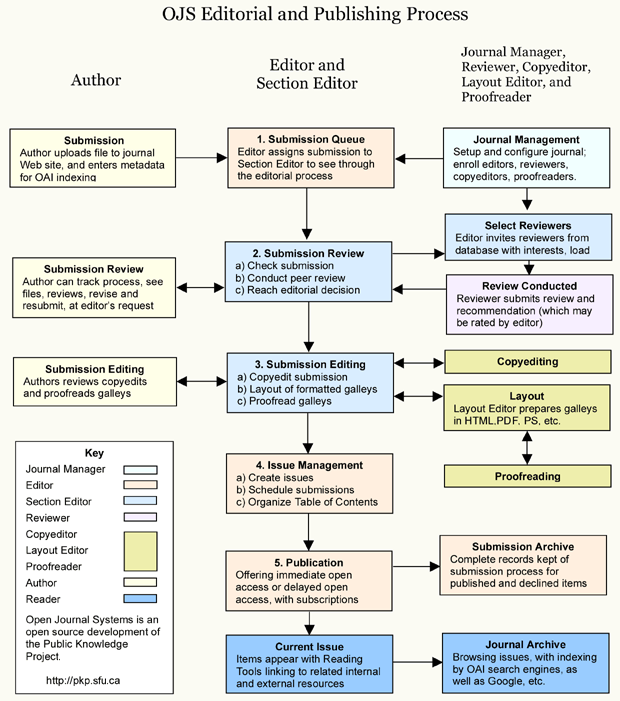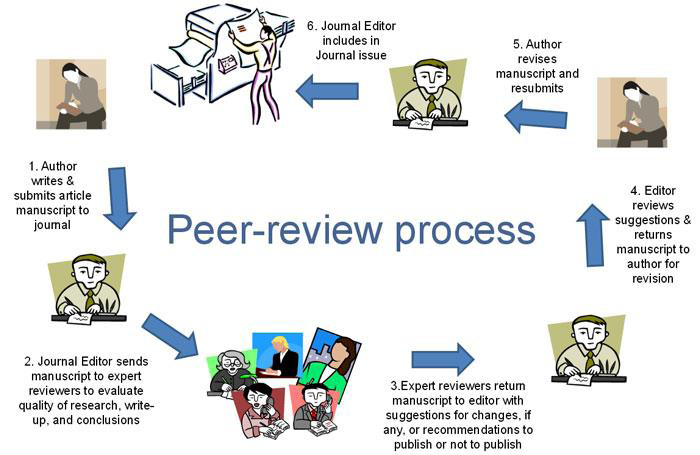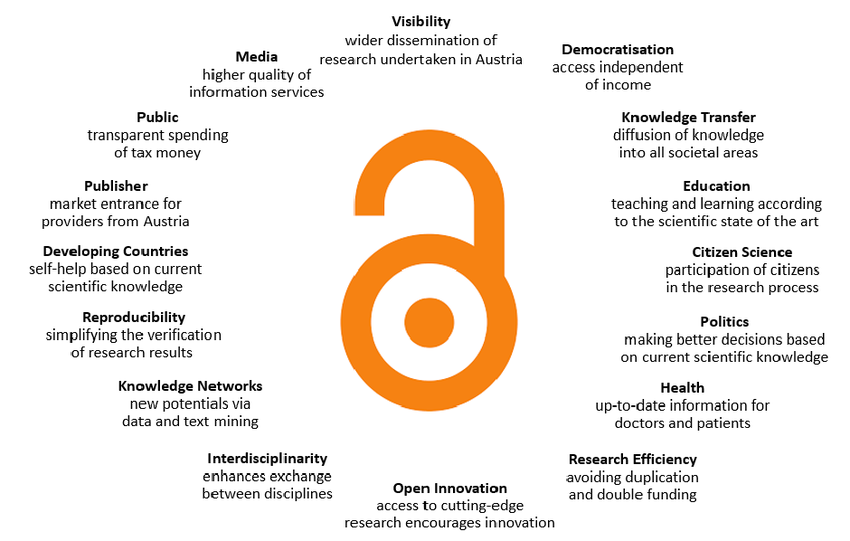This journal uses Open Journal Systems which is open source journal management and publishing software developed, supported, and freely distributed by the Public Knowledge Project under the GNU General Public License.

Open Access, Double-blind Peer-reviewed/referred / Refereed Journal: Peer-review is defined as “obtaining advice on individual manuscripts from reviewers’ expert in the field of publication.” The SPL Journal of Literary Hermeneutics is committed to the highest standards of reviewing all publishable materials—articles, review articles, reviews, interviews—that undergo a rigorous peer-reviewing process. Literary Hermeneutics follows a double-blind peer review system after an initial editorial review at the board level. The details of the peer-review process are given below:. Upon receiving a submission, the editorial board will scrutinise the work for its originality and rigour at the board level, and all author-identifying information will be removed for blind peer review. Experts in the field do all reviews. A review report is created on the following parameters: originality, coherence, communicability, argumentation, rigour, secondary research and innovation, and factual errors. Reviewers decide whether the work will be rejected, published or needs revision. They write a substantive review report justifying their decision. If the work needs revision or has citation error(s), the Chief Editors will contact the contributors with the report specifying a period for revision. On getting a revised copy, if the reviewers feel that the work needs to be revised again, then they may ask the contributors for another quick revision. When the work is ready for publication, it will be sent to the publishing team for final editing, proofreading and publication. Reviewers will have to disclose a conflict of interest, and it will be made sure that all reviewed articles are treated confidentially before their publication. Decision:. The decisions are notified to the contributors, usually within a month. If a writer intends to withdraw his article within the stipulated time, he must seek permission by sending an email/letter of declaration to the chief editor. For two or more authors, it is necessary to seek permission and approval from the authorial team. The journal follows a double-blind peer review system after an initial editorial review at the board level. Below are the details of the peer-review process:

Reference: Benefits of Open Access (Sources: SPARC, righttoresearch, Kingsley & Brown 2012)
Benefits of Open Access
Embracing open access, this journal swiftly shares its content, fostering a global exchange of knowledge. Committed to the principle of openness, this journal grants immediate public access to its research, promoting a worldwide dissemination of information. Rapidly accessible content underscores this journal's dedication to advancing global knowledge exchange. By providing immediate open access, this journal champions the free flow of research, enriching the global intellectual community. A staunch advocate for open knowledge, this journal empowers the public with unrestricted access to its content, fostering a broader dissemination of research worldwide.

Reference: Benefits of Open Access (Sources: SPARC, righttoresearch, Kingsley & Brown 2012)
We warmly invite your submissions to our Literature Journal, dedicated to advancing scholarly dialogue in literary studies. This journal seeks original research that offers fresh perspectives, enriches theoretical discussions, and deepens our understanding of literature across diverse traditions and contexts. We welcome studies that engage with innovative methodologies and contribute to the evolving landscape of literary scholarship. All manuscripts should be rigorously researched and carefully structured, showcasing clarity in thought and originality in approach.
We look forward to your contributions and to collaborating in the pursuit of literary knowledge and discovery.
|
Literature Journal Subjects |
|
Comparative Literature |
|
World Literature (African, Asian, Latin American, European) |
|
Classical Literature (Greek, Roman, Sanskrit, etc.) |
|
British Literature |
|
American Literature |
|
Indian Literature |
|
East Asian Literature (Chinese, Japanese, Korean) |
|
Russian and Eastern European Literature |
|
Arabic and Middle Eastern Literature |
|
Postcolonial Literature |
|
Feminist and Gender Studies in Literature |
|
LGBTQ+ Literature and Queer Theory |
|
Modernist Literature |
|
Contemporary Literature |
|
Victorian Literature |
|
Romantic Literature |
|
Renaissance Literature |
|
Medieval Literature |
|
Baroque and Enlightenment Literature |
|
Literature of Migration and Diaspora |
|
Indigenous Literature and Oral Traditions |
|
African American Literature |
|
Caribbean Literature |
|
Latin American Literature |
|
Literary Theory and Criticism |
|
Genre Studies (Poetry, Drama, Novel, Nonfiction) |
|
Prose and Essay Studies |
|
Children’s Literature |
|
Young Adult Literature |
|
Literature of the Fantastic (Fantasy, Science Fiction) |
|
Gothic Literature |
|
Horror and Supernatural Literature |
|
Detective and Crime Fiction |
|
Satire and Humor Studies |
|
Environmental Literature and Ecocriticism |
|
War and Conflict Literature |
|
Trauma Studies and Testimonial Literature |
|
Literature and Psychology |
|
Literature and Philosophy |
|
Translation Studies |
|
Literary Aesthetics |
|
Literary Linguistics |
|
Literary and Cultural Memory |
|
Literature Journal Subjects |
|
African American Literature |
|
Caribbean Literature |
|
Latin American Literature |
|
Literary Theory and Criticism |
|
Genre Studies (Poetry, Drama, Novel, Nonfiction) |
|
Prose and Essay Studies |
|
Children’s Literature |
|
Young Adult Literature |
|
Literature of the Fantastic (Fantasy, Science Fiction) |
|
Gothic Literature |
|
Horror and Supernatural Literature |
|
Detective and Crime Fiction |
|
Satire and Humor Studies |
|
Environmental Literature and Ecocriticism |
|
War and Conflict Literature |
|
Trauma Studies and Testimonial Literature |
|
Literature and Psychology |
|
Literature and Philosophy |
|
Translation Studies |
|
Literary Aesthetics |
|
Literary Linguistics |
|
Literary and Cultural Memory |
|
Digital Humanities |
|
Popular Literature and Mass Media Studies |
|
Avant-Garde and Experimental Literature |
|
Graphic Novels and Comics |
|
Autobiography, Memoir, and Life Writing |
|
Mythology, Folklore, and Fairy Tales |
|
Literature and Religion |
|
Migration and Exile Literature |
|
Literary Adaptation and Film Studies |
|
Disability Studies in Literature |
|
Legal and Political Narratives |
|
Narrative Theory |
|
Rhetoric and Composition |
|
Psychoanalysis and Literature |
|
Cultural and Social Theory in Literature |
|
Posthumanism and Science Studies |
|
Literature of Revolution and Resistance |
|
Ecofeminism and Environmental Justice |
|
Queer Ecologies in Literature |
|
Literature of the Anthropocene |
|
Literature and Technology |












